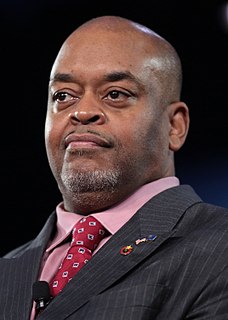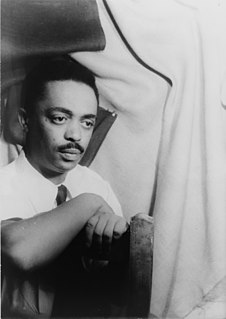A Quote by Nelson Mandela
The laws that stopped blacks from voting were the worst, because they prevented blacks from voting someone into parliament who could change the other laws. Even though the blacks were the majority of the population, they were still not getting a say.
Related Quotes
I was on a panel with light skinned Blacks and a famous gay science fiction writer, who were complaining about how Blacks are against gays and light skinned Blacks and how intolerant Blacks are of different groups. My position was that Blacks were among the most humanistic, tolerant groups in the country and that across the street from my house in Oakland was one inhabited by White gays.
Blacks were not enslaved because they were black but because they were available. Slavery has existed in the world for thousands of years. Whites enslaved other whites in Europe for centuries before the first black was brought to the Western hemisphere. Asians enslaved Europeans. Asians enslaved other Asians. Africans enslaved other Africans, and indeed even today in North Africa, blacks continue to enslave blacks.
My protest about the post exchange seating bore some results. More seats were allocated for blacks, but there were still separate sections for blacks and for whites. At least I had made my men realize that something could be accomplished by speaking out, and I hoped they would be less resigned to unjust conditions.
I never, with my eyes, saw the mistreatment of any black person. Not once. Where we lived was all farmers. The blacks worked for the farmers. I hoed cotton with them. I'm with the blacks, because we're white trash. We're going across the field.... They're singing and happy. I never heard one of them, one black person, say, I tell you what: These doggone white people - not a word!... Pre-entitlement, pre-welfare, you say: Were they happy? They were godly; they were happy; no one was singing the blues.
Today, blacks are no longer the litmus paper or the barometer of social change. Blacks are in every segment of society and there are laws that help to protect them from racial discrimination. The new ‘niggers’ are gays. It is in this sense that gay people are the new barometer for social change. The question of social change should be framed with the most vulnerable group in mind: gay people.












































